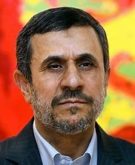VOA – Iran’s Supreme Leader ayatollah Ali Khamenei on Thursday told member of the country’s Assembly of Experts “not to be at each other’s throats over this or that convention or agreement.”
Khamenei was most probably referring to international anti-money laundering and anti-corruption conventions demanded by the international watchdog, the Financial Action Task Force (FATF), a multilateral agency based in Paris.
FATF has asked Iran to amend its laws to ensure adequate financial standards, which President Hassan Rouhani’s government and the parliament have agreed to, but the conservatives close to Khamenei have blocked two of the proposed bills.
Iran’s hard-line leader told his audience, “When a certain convention or agreement is being discussed in the county, supporters and opponents should express their points of views, and the two sides should not accuse each other of camaraderie with the enemy” and inflame conflict with one another.
Khamenei’s remark about the bills comes one day after the Assembly of Experts warned about the “strategic” danger of accession to the conventions. Until now, Khamenei has not revealed his own position about the FATF demands, but all his conservative allies have rallied against them. The Assembly is also controlled by Khamenei.
The constitutional role of the institution is to choose the Supreme Leader and supervise his work, but the Assembly has turned into a body praising Khamenei and echoing all his statement.
During his remarks Khamenei repeatedly told his followers to “separate their ranks from those of the enemy,” adding that one should not accuse anyone who opposes him of “supporting the enemies.”
Khamenei’s conservative supporters often attack other politicians or rights activists by accusations of spying and collaborating with Islamic Republic’s enemies. Iran’s Supreme Leader often uses the term “enemy” to mean the United States and to an extent Israel.
Despite his call not to label people as collaborators, he said that those who question Islamic Republic’s role in the Middle East “in fact are helping the enemy”. He claimed that “the enemy” is afraid of Iran in the region.
The U.S., Israel and to an extent Western Europe have expressed concern over Iran’s interventionist foreign policy in regional counties, such as Iraq, Syria, Yemen and Afghanistan.
Speaking about U.S. sanctions, Khamenei said that while the United States talks about implementing “the strongest sanctions,” “if we mobilize maximum” resources, “we will inflict the heaviest defeat on America in that country’s history”.
Iran’s leaders often use the rhetoric of mobilizing resources and relying on domestic talent to defy tough challenges, which they have largely created with their own foreign and domestic policies.
Khamenei’s favorite “Resistance Economy” is one slogan aimed at making the country self-sufficient, but in fact the country’s economy has gone into a tailspin since the re-introduction of U.S. sanctions in 2018.
Khamenei also spoke about “enemy’s influence on cyberspace and on the country’s culture.” This is also a favorite theme for the supreme leader and his conservative followers.
 Shabtabnews In this dark night, I have lost my way – Arise from a corner, oh you the star of guidance.
Shabtabnews In this dark night, I have lost my way – Arise from a corner, oh you the star of guidance.


